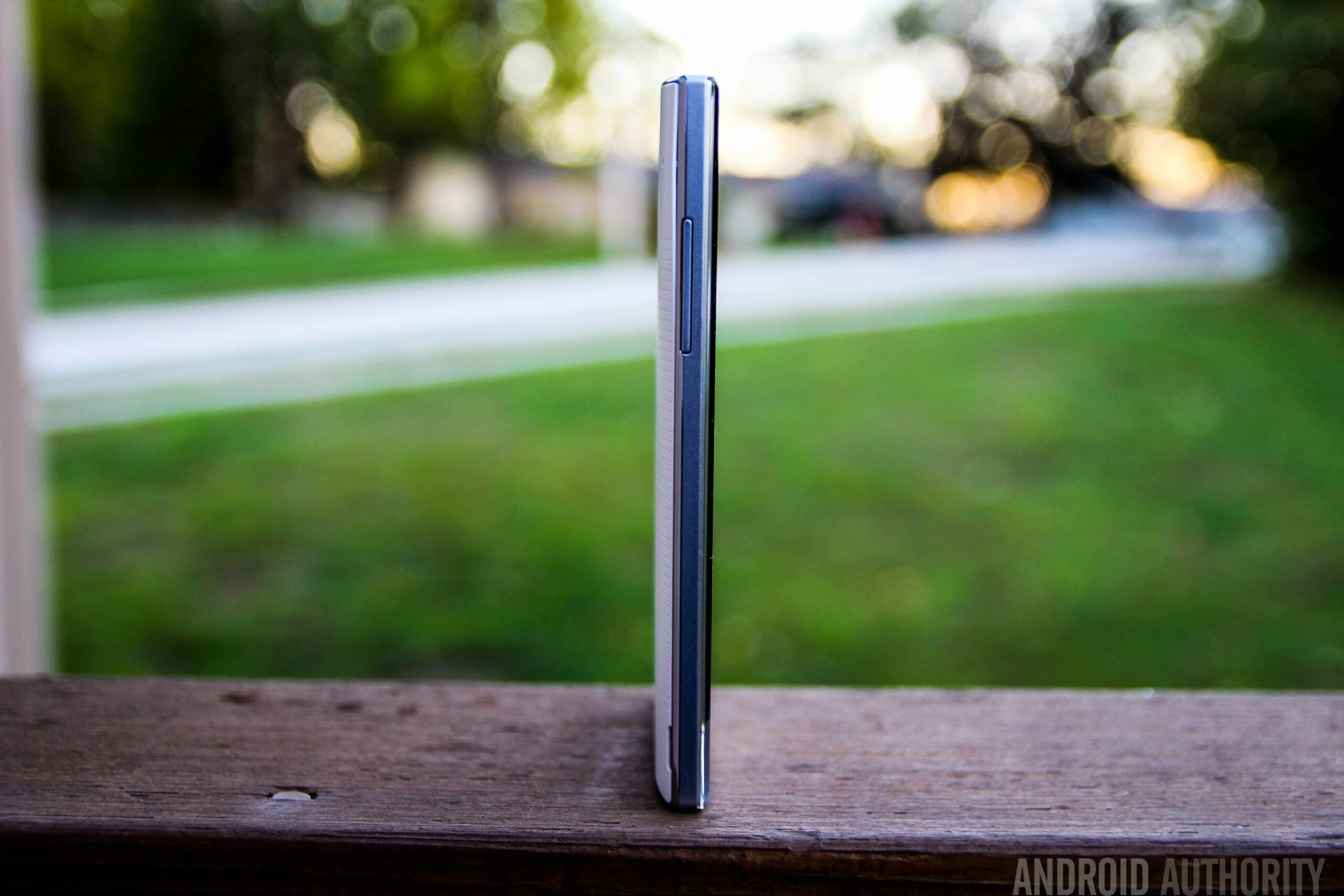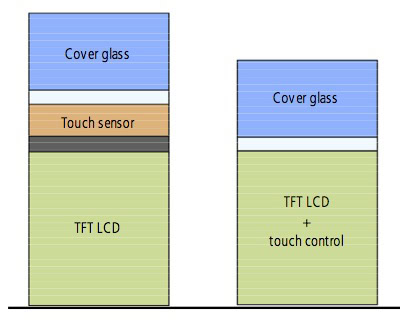Affiliate links on Android Authority may earn us a commission. Learn more.
Sharp in-cell display promises thinner smartphones
Published onJune 17, 2015

Sharp has announced that it has begun mass production of its in-cell type touch displays for smartphones this month. This design technique promises thinner, lighter displays, which could reduce the thickness and weight of upcoming smartphones.
Typically, smartphone displays are constructed from two layers. One layer for the actual light emitting parts, such as the LCD, with a separate touch recognition layer placed on top to detect user inputs. Sharp’s in-cell display technology integrates the two parts into the same layer, with touch sensor circuitry and LCD drive circuitry sitting side by side in the LCD module.

Integrating the two parts into the same layer means that Sharp’s displays will end up being slightly thinner than before, enabling manufacturers to produce smaller devices or use the additional space for extra hardware, such as larger battery capacities.
Sharp has been at the cutting edge of several recent developments in mobile displays. As well as consistently pushing the limits of pixel density with a range of small form factor 4K panel prototypes, the company has also been pushing the use of IGZO backplane technology, resulting in lower power consumption and a wider range of possible free-form design shapes and sizes.
However, the company recently cut 6,000 jobs as part of this year’s restructuring plans, necessitated by Sharps’ third annual net loss in four years and a large bank bailout to keep the company afloat. Sharp’s LCD business accounts for the majority of its sales, thanks to orders from Apple and a number of Chinese manufacturers, so the company has been reluctant to make changes to this part of its business. Sharp seems to be hoping that new technologies will help increase orders from customers.
The first batch of in-cell displays to leave Sharp’s production line are destined for future smartphones. However, the company is also in the process of developing medium-sized in-cell touch displays for use in tablets and notebook PCs, where a little less bulk and weight will no doubt be even more appreciated.